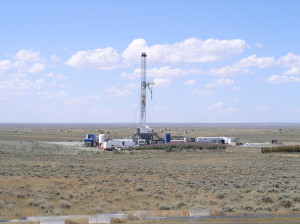*This article is not a substitute for the advice of an attorney.*
As you may have noticed, weekly round ups have been missing for the past couple of weeks. I hope to continue the weekly updates of ag law news, and here is a list of major ag law stories that made the news in the month of February.
* Denton Residents Seek Signatures for Fracking Ban. Citizens of Denton, Texas, seek to become the first city in the state to ban fracking within its bounds. The Denton Drilling Awareness Group is currently gathering signatures for a proposed initiative that would prohibit fracking within city limits. If the required 571 signatures are obtained, the proposal would appear on the election ballot in May or November. If passed, proponents expect legal challenges by oil and gas companies and others. [Read article here.]
*Nebraska Law Allowing Governor To Approve Keystone Pipeline Route Ruled Unconstitutional. Nebraska State Court Judge Stephanie Stacy held that a state statute, which gave the Nebraska governor the power to approve the Keystone Pipeline route and authorize eminent domain, was unconstitutional. Specifically, Judge Stacy found LB1161 improper because the decision to approve the route and grant eminent domain power should have been made by the Nebraska Public Service Commission rather than by the Governor. Judge Stacy’s decision will be appealed by the Nebraska Attorney General. [Read articles here and here.]
* Missouri Sues California Over Egg Production Law. The Missouri Attorney General has filed suit in California federal court seeking to invalidate a California law that will, beginning in 2015, prohibit the sale of eggs in California if the chickens that produced them were raised in cages that would violate California law. The lawsuit claims that the California law infringes on interstate commerce by imposing new production requirements on out of state farmers. “If California legislators are permitted to mandate the size of chicken coops on Missouri farms, they may just as easily demand that Missouri soybeans be harvested by hand or that Missouri corn be transported by solar-powered trucks,” said Attorney General Chris Koster. [Read article here.]
* UT Releases Study of Water Use in Barnett Shale Production. A University of Texas study recently found that oil and gas drilling and production in the Barnett Shale used about 8.5 billion gallons in 2011. This accounts to about 4% of the total water usage in the 15-county area overlying the shale. The overall impact of fracking on water use certainly depends on the county–counties located in drier areas and counties with more activity see a greater impact. For example, in Tarrant County, fracking accounted only for about 2.5% of the total water use, but in Montague County where drilling is more active, fracking accounted for about 36% of the total water use. [Read article here.]
*The Number of Women Farmers in Texas Increasing. The Texas Tribune ran an article about the increasing number of female farmers in Texas. Unlike the statistics for the United States as a whole, Texas boasts an increasing number of female farmers. Census data shows that from 2007 to 2012, the number of female operators in Texas increased by 10%. The data also showed an increase in the number of black and Hispanic agricultural operators in Texas, as well as in increasing average age of operators. [Read article here.]
*Article Outlines Law Regarding Seed Savings. Southeast Farm Press recently published an article discussing the laws regarding saving seeds. Many seeds are protected by the Plant Variety Protection Act and/or patent law. Importantly, violations of these laws can result in criminal convictions, fines, and other penalties. [Read article here.]













